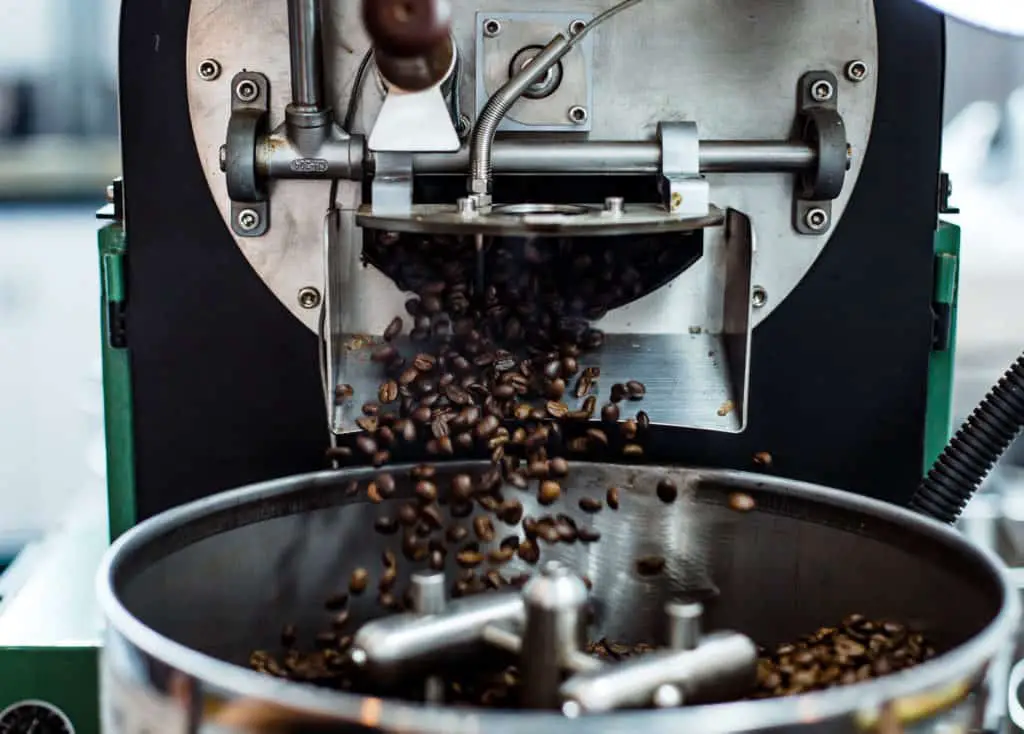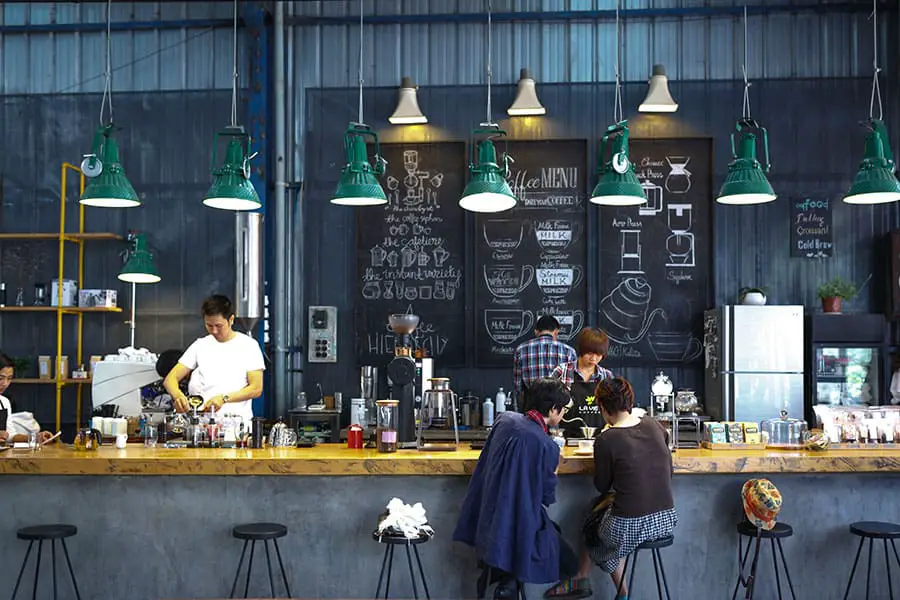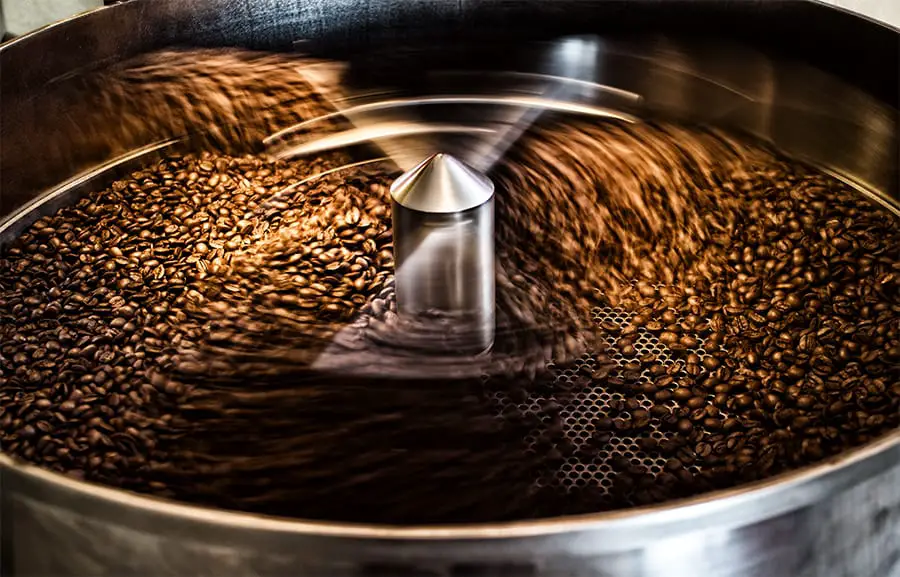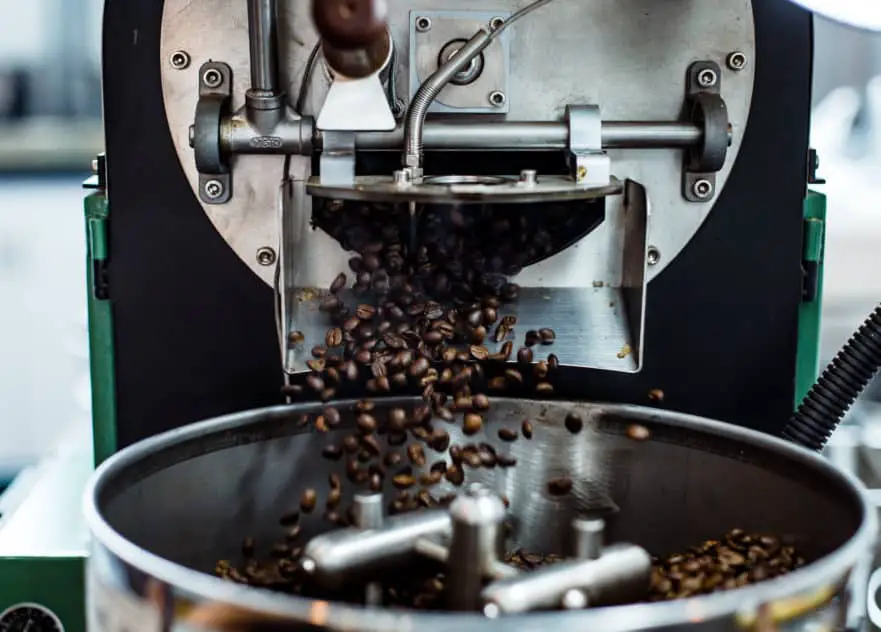
Picture this: you’re strolling through the supermarket, and the coffee aisle beckons with familiar names like Starbucks, Dunkin’ Donuts, and the store’s own brand. Shelves brim with light roasts, dark roasts, and blends boasting catchy names, all at wallet-friendly prices. It’s tempting to toss a bag in your cart and call it a day. But before you do, let’s talk about why your local coffee roaster might just be the better choice for your morning brew.
When you buy coffee from a local roaster, you’re not just getting a bag of beans—you’re investing in unparalleled freshness, superior quality, expert guidance, diverse flavors, and a chance to support the environment, coffee farmers, and your community. Plus, it’s often just as convenient as grabbing coffee off the supermarket shelf. Let’s dive into why local roasters deserve a spot in your coffee routine.
What Is a Coffee Roaster?
First things first: what exactly is a coffee roaster? At its core, a coffee roaster is an artisan who transforms raw, green coffee beans into the aromatic, flavorful beans we know and love. Using specialized roasting machines—like my trusty Diedrich IR5—I’d carefully adjust heat, airflow, and time to coax out each bean’s unique flavor. It’s part science, part art, and entirely dedicated to crafting the perfect cup. Local roasters take this craft seriously, sourcing high-quality beans and roasting them in small batches to ensure every bag delivers peak flavor.
The Case for Local Coffee Roasters

Unmatched Freshness
Coffee is at its best between 3 days and 2 weeks after roasting, when its flavors are vibrant and aromatic. Local roasters capitalize on this window, often stamping their bags with the roast date so you know exactly how fresh your coffee is. This freshness translates to a richer, more nuanced cup—think bright citrus notes or deep chocolate undertones that pop with every sip.
Supermarket coffee, on the other hand, often sits on shelves for months, labeled with a “best by” date that could be six months to a year out. By the time it reaches your cup, the beans have likely lost their zest due to oxidation, leaving you with a flat, lackluster brew. Local roasters’ small-batch approach ensures you’re always getting coffee at its peak, making every morning a little brighter.
Superior Quality
Local roasters are passionate about their craft, and it shows in the quality of their coffee. They source specialty-grade beans—often scoring 80 or higher on the Specialty Coffee Association’s 100-point scale—ensuring minimal defects and exceptional flavor. These beans come from specific regions, farms, or even micro-lots, with details like altitude, varietal, and processing method carefully considered to highlight the coffee’s best traits.
Contrast this with supermarket coffee, which is typically mass-produced commodity coffee blended from various sources to keep costs low. Local roasters meticulously oversee the roasting process, fine-tuning each batch to bring out the beans’ unique character. The result? A cup that’s complex, balanced, and far superior to the one-size-fits-all blends you’ll find at the grocery store.
Expert Guidance
Ever wondered whether a Chemex or V60 pour-over is right for you? Or how grind size affects your French press? Local roasters are your go-to coffee mentors. Many offer tastings, brewing workshops, or casual chats at their shops, sharing insights on everything from flavor profiles to brewing techniques. For instance, a Brazilian coffee might boast chocolatey notes best suited for espresso, while a Kenyan coffee’s floral tones shine in a pour-over.
This personalized advice is hard to come by in a supermarket aisle, where you’re left to decipher vague packaging. Visiting a local roaster not only elevates your coffee game but also deepens your appreciation for the craft. Trust me—once you taste the difference a proper brew makes, you’ll be hooked.
A World of Flavors
Local roasters open the door to a diverse array of coffees you won’t find in supermarkets. While grocery stores stock familiar blends or origins like Brazil and Colombia, roasters often showcase single-origin gems from places like Ethiopia, Kenya, or Panama. These coffees offer distinct flavors—think juicy berry notes from an Ethiopian Yirgacheffe or the crisp apple acidity of a Kenyan AA—that reflect their unique terroir.
Many roasters also rotate seasonal offerings, ensuring you’re always trying something new. This variety encourages exploration, letting you discover your perfect cup. Supermarkets, by contrast, prioritize consistency over adventure, leaving you with predictable blends that rarely surprise.
Supporting the Environment
Coffee production can take a toll on the planet, but local roasters often prioritize sustainability through certifications that protect ecosystems. Here’s a quick look at some key certifications you’ll find at local roasters:
| Certification | What It Means | Environmental Impact |
|---|---|---|
| Organic | Meets USDA standards for avoiding synthetic pesticides and fertilizers. | Reduces chemical runoff, preserving soil and water quality. |
| Rainforest Alliance | Promotes sustainable farming and fair worker treatment. | Protects ecosystems and combats deforestation. |
| Bird Friendly/Shade Grown | Encourages shade-grown coffee under diverse tree canopies. | Preserves biodiversity and wildlife habitats. |
These certifications come at a premium, but local roasters willingly pay more to source beans that align with ethical practices. By choosing their coffee, you’re supporting efforts to combat deforestation, protect biodiversity, and promote sustainable agriculture—a small but meaningful step toward a healthier planet.
Empowering Coffee Farmers
Coffee farmers often face significant risks, from volatile market prices to unpredictable weather, yet they earn a fraction of the industry’s profits. Local roasters help bridge this gap by sourcing beans through ethical trade practices:
- Fair Trade: Guarantees farmers a minimum price, shielding them from market fluctuations and ensuring fair wages.
- Direct Trade: Bypasses middlemen, allowing roasters to pay farmers premium prices—often exceeding Fair Trade standards—for high-quality beans.
These practices empower farmers to invest in their farms, families, and communities, breaking the cycle of poverty. For example, Fair Trade premiums fund schools, healthcare, and infrastructure in coffee-growing regions. When you buy from a local roaster, you’re directly supporting these initiatives, ensuring farmers are fairly compensated for their labor.
Surprising Convenience
You might think supermarkets win on convenience—after all, coffee’s right there alongside your groceries. But local roasters are catching up. Many offer online stores with subscriptions or free shipping, delivering fresh coffee to your door on your schedule. Services like Bean Box even curate selections from roasters across the US, letting you sample different flavors without leaving home.
If you’re lucky enough to have a roaster nearby, visiting their shop is a sensory treat. The aroma of freshly roasted beans, the hum of the roasting machine, and the chance to grab a pour-over on the spot make it an experience worth savoring. Whether online or in-person, local roasters make specialty coffee accessible and hassle-free.
Boosting Your Community
Buying local isn’t just about coffee—it’s about strengthening your community. According to the US Department of Labor, independent retailers like local roasters return over three times more money per dollar of sales to the local economy compared to chain stores. Roasters create jobs, partner with nearby businesses, and often sponsor community events, from farmers’ markets to charity runs.
When you choose a local roaster, you’re investing in the people and places around you. As I used to say at my coffee shop: “Buy local, buy fresh!” It’s a simple choice that benefits you, your neighbors, and the broader coffee community.
Why Not Supermarkets?

Supermarkets have their perks—lower prices, familiar brands, and one-stop shopping. But these come at a cost. Mass-produced coffee prioritizes shelf life over flavor, often blending lower-grade beans to cut costs. Ethical sourcing is rarely a focus, with many brands lacking transparency about their supply chains. And while supermarkets are convenient, they can’t match the expertise, variety, or community impact of a local roaster.
Make the Switch Today
Next time you’re tempted by the supermarket coffee aisle, consider heading to your local roaster instead. You’ll discover a world of fresher, tastier coffee, gain insights to elevate your brewing, and support farmers, the environment, and your community in the process. Whether you visit a roastery or explore online subscriptions, the switch is easier than you think—and your taste buds will thank you.

